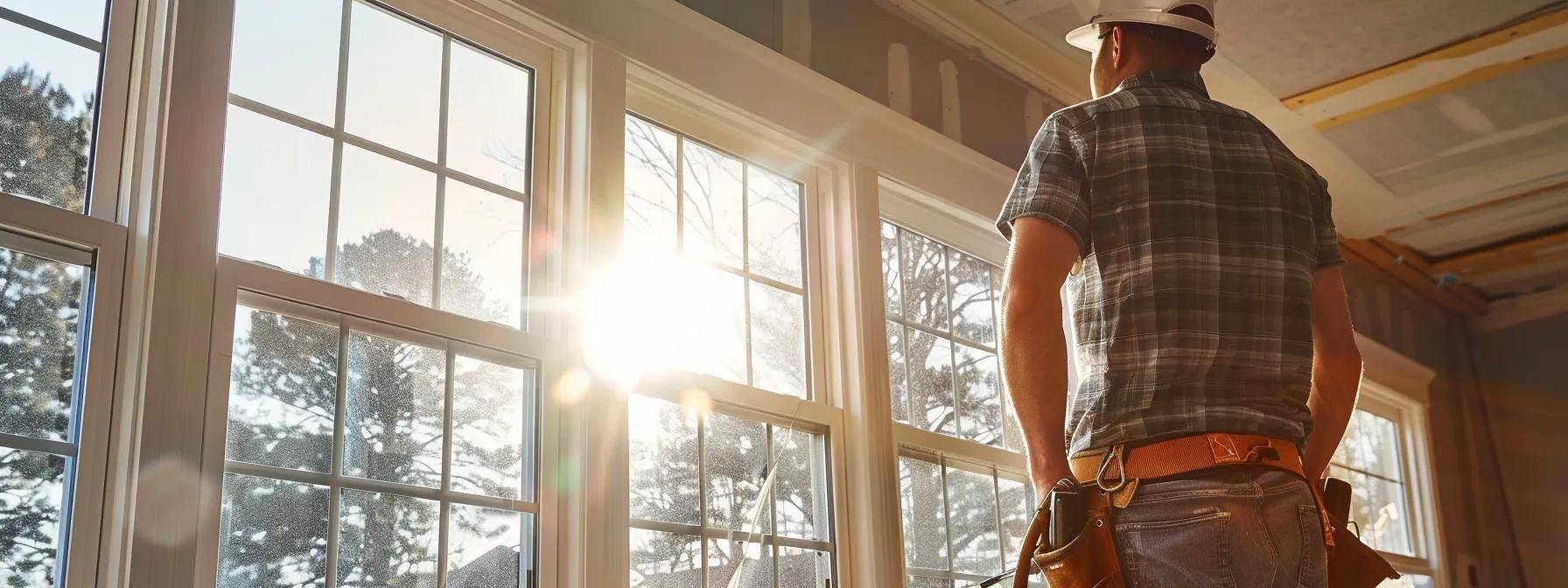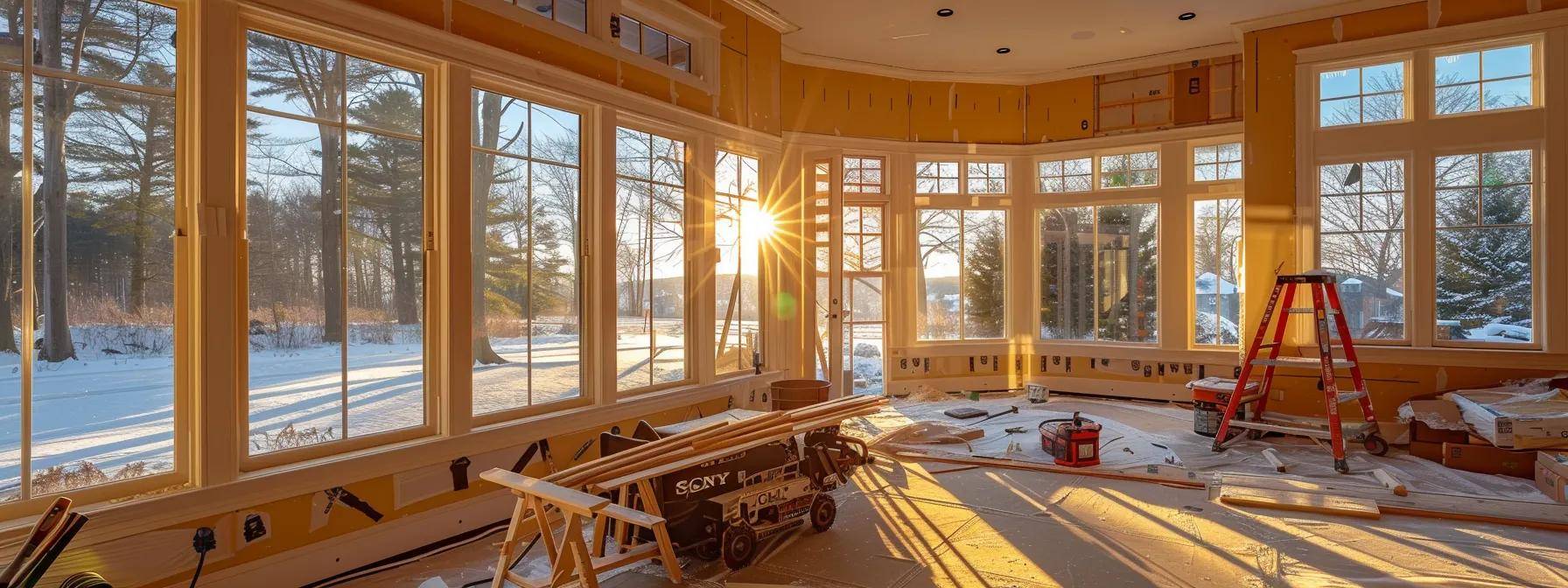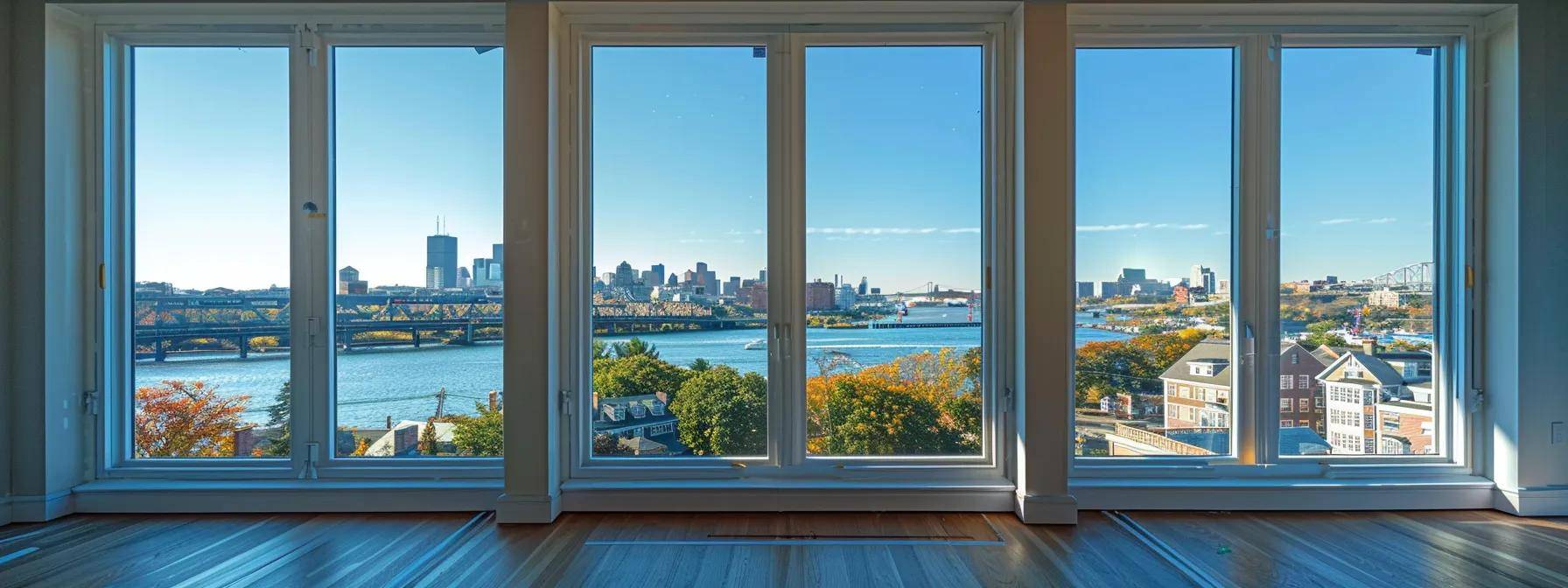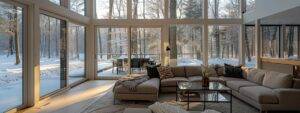What Is the Best Season for Window Replacement in Massachusetts?
Massachusetts’ variable climate requires thoughtful scheduling for window replacement to ensure installation quality, energy efficiency, and cost effectiveness. The optimal season balances moderate temperatures, minimal humidity extremes, and contractor availability. Installing windows in the spring or fall allows adhesives and sealants to cure properly and minimizes problems such as improper sealing or thermal expansion. Contractors, including those at dd construction, report fewer issues during these transitional periods as compared to the extreme conditions of summer heat or winter cold.
Seasonal timing also aligns with typical maintenance cycles and promotional programs—such as Massachusetts rebates, tax credits, or seasonal discounts—that further reduce costs and enhance energy performance. In summary, scheduling window replacement during spring or fall maximizes installation quality, minimizes energy loss, and supports long-term durability.
Why Are Spring and Fall Ideal for Window Replacement?

Spring and fall offer mild temperatures and balanced humidity that yield predictable curing times for adhesives and sealants. In spring, the gradual warming after winter minimizes risks of moisture penetration and allows for extended work hours free from summer heat waves. In autumn, cooling temperatures and shorter days help natural insulation retain interior heat while many manufacturers offer seasonal deals.
These seasons also frequently coincide with local energy efficiency programs like Mass Save, which provide rebates and incentives for energy-saving renovations. Additionally, the stable weather during spring and fall results in less disruption to daily routines, smoother project management, and higher homeowner satisfaction due to improved sealing and alignment.
What Are the Challenges of Summer Window Replacement?
Summer window replacement in Massachusetts presents challenges that can compromise installation quality and energy performance. High temperatures cause window materials, such as vinyl and wood, to expand, leading to gaps, misalignment, and reduced seal effectiveness. Rapid-drying adhesives may not form a complete bond, increasing the risk of air leaks and higher energy costs as air conditioning works harder.
Contractor availability is reduced during summer due to high demand, and extreme heat can also degrade window coatings through UV exposure, leading to fading and material deterioration. The cumulative effect of these issues results in increased risks, higher compensation costs, and potential post-installation repairs, making summer a less optimal season for window replacement.
Can You Replace Windows in Winter in Massachusetts?

Although window replacement in winter is feasible, it requires extra precautions due to low temperatures. Cold weather slows the curing process of adhesives and can cause materials like wood to contract and become brittle, resulting in gaps and compromised insulation. Specially formulated adhesives and additional protective measures are necessary to counteract these issues.
Winter installations may benefit from shorter project timelines and less competition for contractor schedules, but they also bring safety concerns, such as the increased risk of accidents on icy surfaces. Homeowners may notice temporary discomfort or increased energy usage until the installation fully seals. With proper planning and the use of weather-appropriate techniques, winter replacement can be successful; however, it remains more challenging than installations in spring or fall.
How Does Massachusetts Climate Affect the Timing of Window Replacement?
Local climate conditions—temperature, humidity, and precipitation—significantly influence window replacement outcomes in Massachusetts. Fluctuating temperatures can cause materials to expand or contract, affecting the fit and seal of new windows. Optimal installation conditions prevent excessive air infiltration and heat loss by providing a steady environment for adhesives to cure properly.
Sudden shifts in humidity may lead to condensation and moisture accumulation around window frames, risking mold growth and compromised indoor air quality. Unsuitable weather results in increased energy costs and potential installation errors. Thus, aligning window replacement with moderate weather conditions not only optimizes energy efficiency but also ensures that the chosen window type performs at its best throughout the year.
What Weather Conditions Should You Consider Before Replacing Windows?
Homeowners should review forecasted conditions before scheduling window replacement. Ideal installation occurs during moderate temperatures with low ambient moisture, steady humidity, and clear, calm weather. Extreme temperatures can cause materials to expand or contract, while high humidity may slow adhesive curing. Calm weather conditions facilitate a secure bond for the windows. Additionally, it is wise to avoid periods with sudden weather changes like unexpected rain or cold snaps, as these variations can delay installation and compromise quality.
How Do Seasonal Temperature Fluctuations Impact Installation Quality?
Stable temperatures are essential for proper adhesive curing and sealant performance. When temperatures are too high, materials expand and may not seal properly; when too cold, they contract, leading to potential gaps. Both scenarios create risks of air and water leaks. Contractors recommend scheduling projects during moderate and stable conditions—typically in spring or fall—to ensure a seamless installation that minimizes future energy loss and maintenance issues.
How Does Massachusetts’ Climate Influence Energy Efficiency Choices?
Massachusetts’ climate drives the selection of window types and installation timing to optimize energy efficiency. Energy-efficient windows, especially those certified by ENERGY STAR, minimize heat transfer during harsh winters and block unwanted heat in summer. The ideal installation ensures that the windows perform well and contribute to lower utility bills by reducing reliance on heating and cooling systems. In addition, choosing the correct window type—such as triple-pane for extreme winters or double-pane for milder conditions—helps homeowners tailor their investments according to local climate demands. Rebates and incentives provided by programs like Mass Save further enhance the economic and environmental benefits of timely window replacement.
What Are the Benefits of Replacing Windows During the Best Time of Year?

Replacing windows during optimal seasons in Massachusetts yields multiple benefits, including improved energy efficiency, reduced installation costs, enhanced indoor comfort, and overall higher project reliability. By installing new, energy-efficient windows during spring or fall, homeowners prevent heat loss in winter and block excessive heat in summer, resulting in reduced utility bills. Studies indicate that upgraded windows can lower heating costs by approximately 15% to 20% when optimally installed.
Furthermore, optimal timing reduces labor costs due to fewer installation errors and delays, promoting smoother project timelines. Enhanced sealing and insulation contribute to increased homeowner satisfaction, a reduced carbon footprint, and improved indoor air quality. Seasonal rebate programs and incentives further decrease the net cost of the project, making timely replacement a sound financial investment.
How Does Timing Affect Energy Savings and Comfort?
Installing windows during moderate weather conditions directly correlates with reduced energy costs and improved indoor comfort. Well-installed, energy-efficient windows prevent thermal losses in winter and block heat in summer, maintaining a balanced indoor environment. This ensures that heating and cooling systems operate more efficiently, thereby reducing utility bills. In addition, a tight seal minimizes drafts and prevents condensation, leading to a more consistent indoor temperature and enhanced comfort for occupants.
What Cost Savings Can You Expect From Seasonal Window Replacement?
Seasonal installation can lead to lower overall costs. By replacing windows during spring or fall, homeowners benefit from lower labor and material expenses due to fewer weather-related delays and corrective measures. Energy savings resulting from improved insulation can lower annual utility bills by up to 20%. Additionally, the reduction in post-installation repairs and maintenance costs further contributes to long-term savings. When combined with seasonal rebates and incentives offered by programs like Mass Save, the financial benefits of timely window replacement are significant.
How Does Timing Influence Contractor Availability and Project Scheduling?
Scheduling window replacement during favorable seasons such as spring or fall ensures better contractor availability. Contractors experience fewer scheduling conflicts during these periods, leading to faster project completion and more competitive pricing. A less congested contractor schedule allows for greater focus on quality control and personalized service, which reduces the likelihood of errors or delays. In contrast, installations scheduled during peak periods like summer or winter may face longer wait times and increased project costs due to high demand.
Which Window Types Are Best Installed in Specific Seasons in Massachusetts?
The optimal installation season varies by window type. Vinyl windows are best installed during the moderate temperatures of spring and fall to avoid expansion or contraction issues. Wood windows require a period with low humidity to prevent moisture-related warping and are ideally installed in the fall when conditions are cooler and drier. Fiberglass windows, known for their durability and minimal thermal expansion, also perform best during late spring or early fall when adhesive curing is optimal.
Contractors advise matching each window type with the season that maximizes its performance, ensuring that benefits such as energy efficiency, durability, and aesthetic appeal are fully achieved. Additionally, choosing the appropriate season may enable homeowners to take advantage of incentive programs and improved warranty conditions.
When Is the Best Time to Install Vinyl Windows?
Vinyl windows, known for their energy efficiency and low maintenance, should be installed during the spring or fall. Moderate temperatures ensure that the vinyl remains stable during adhesion and prevents premature expansion or contraction. This results in a durable, airtight installation that minimizes drafts and reduces energy costs. Installation during these seasons also aligns with manufacturer guidelines and rebate opportunities, enhancing both immediate performance and long-term durability.
How Does Wood Window Replacement Timing Differ?
Wood windows require careful handling because they are sensitive to moisture and temperature fluctuations. Installing wood windows in the fall, when the weather is cooler and drier, minimizes the risk of warping and moisture absorption. While spring can also be suitable, extra precautions may be necessary to ensure moisture from winter melting does not affect the installation. Proper application of sealants and protective coatings in these moderate conditions helps preserve the wood’s natural beauty and performance over time.
What Are the Seasonal Considerations for Fiberglass Window Installation?
Fiberglass windows offer excellent durability and minimal thermal expansion. Although more forgiving than vinyl or wood, fiberglass installations still benefit from moderate weather—typically in late spring or early fall. These conditions ensure that adhesives cure evenly, reducing the risk of air pockets or imperfect seals. The stability during these seasons enhances the window’s energy efficiency and overall performance, making them a reliable, long-term investment for homeowners.
How Can Homeowners Prepare for Window Replacement in Massachusetts’ Optimal Seasons?

Preparation is key to a successful window replacement project. Homeowners should start with a thorough evaluation of the current window systems and consider performing a detailed home energy assessment. This helps identify areas for improvement and qualifies homeowners for rebates through programs like Mass Save.
It is important to gather multiple quotes from reputable contractors experienced in seasonal installations. Clearing obstructions around windows and coordinating necessary permits and inspections are vital steps. Homeowners should also review local weather trends to select a narrow window during which conditions will be stable. Finally, inquiring about seasonal rebates, tax credits, and financing options will further optimize the project’s overall cost.
What Steps Should You Take Before Scheduling Window Replacement?
Before scheduling, homeowners should:
• Conduct a detailed inspection of existing windows and assess any repair needs. • Research and select the appropriate window style and material based on energy efficiency, durability, and aesthetics. • Compare quotes from multiple contractors to ensure competitive pricing and assess prior project success. • Schedule a consultation to discuss timelines, potential disruptions, and available rebates. • Prepare financial documentation and clear the installation area to streamline the process.
These preparatory steps ensure that the project is well planned and that conditions are optimal for installation.
How to Choose the Right Contractor for Seasonal Window Replacement?
Choosing a contractor with extensive experience in seasonal installations is critical. Homeowners should look for companies with verified credentials, strong customer testimonials, and detailed written proposals that outline the scope of work, materials, timelines, and pricing. It is important to discuss warranty terms and post-installation services and to verify that the contractor can adapt to Massachusetts’ unique climate challenges. Reliable contractors, such as DD Construction, demonstrate expertise in managing seasonal factors and offer tailored advice for maximizing energy efficiency and minimizing installation issues.
What Are the Common Seasonal Rebates and Incentives for Window Replacement in Massachusetts?
Massachusetts offers several rebates and incentives for energy-efficient home improvements. Programs like Mass Save provide financial incentives for upgrading to ENERGY STAR certified windows. Seasonal rebates are typically available during spring and fall when the installation is optimal. Homeowners may be required to submit before-and-after energy assessments to qualify. Additionally, some contractors offer seasonal promotions that further reduce upfront costs, making timely window replacement an economically attractive option.
What Are the Risks of Replacing Windows Outside the Best Time of Year?
Replacing windows during suboptimal weather may result in poor adhesion, moisture infiltration, and premature material failure. Extreme conditions—whether high summer heat or freezing winter cold—can compromise the curing process, leading to gaps and reduced insulation. These issues increase the risk of energy loss and may result in higher utility bills, voided warranties, or the need for frequent repairs. In summary, off-season installations expose homeowners to higher long-term maintenance and repair costs, reduced energy efficiency, and potential safety hazards.
How Can Extreme Weather Affect Window Installation Quality?
Extreme temperatures can cause window materials to expand or contract excessively, compromising the bond of adhesives and sealants. In severe heat, rapid expansion and premature drying of adhesives may result in gaps, while extreme cold can make materials brittle and reduce flexibility. Both scenarios lead to costly repairs and diminished energy performance. To avoid these risks, it is essential to adhere to optimal weather conditions during installation.
What Are the Potential Cost Implications of Off-Season Replacement?
Off-season window replacement often incurs additional costs due to the need for specialized adhesives, rapid repair measures, and higher labor charges during periods of extreme weather. Post-installation, compromised sealing may lead to increased energy bills and frequent maintenance. Furthermore, voided warranties due to non-compliance with manufacturer guidelines can increase long-term costs, making off-season replacement generally less economical.
How Does Off-Season Replacement Impact Warranty and Long-Term Performance?
Installing windows outside the recommended weather conditions can void warranties if manufacturers’ guidelines are not met. Poor installation quality undermines long-term performance by increasing the likelihood of drafts, moisture issues, and material degradation. In contrast, windows installed under optimal conditions retain their warranty protection and maintain higher energy efficiency and durability over time. This makes adherence to seasonal recommendations critical for protecting both investment and performance.
Where Can You Find Expert Window Replacement Services in Massachusetts Year-Round?

Expert window replacement services are available throughout the year in Massachusetts, though quality and scheduling vary with seasonal conditions. Reputable companies like DD Construction adjust their processes to suit changing weather by using specialized techniques and materials. These companies invest in ongoing training to ensure high standards regardless of the season. Homeowners can access these services by researching local reviews, requesting case studies, and using online scheduling tools to secure an appointment during the optimal weather window.
How Do Local Companies Adapt to Seasonal Window Replacement Challenges?
Local contractors employ adaptive strategies to overcome seasonal challenges. During optimal seasons, they capitalize on stable weather to ensure proper adhesive curing and precise installations. In less favorable periods, they employ advanced tools, temperature-controlled equipment, and specialized materials to simulate ideal conditions. Flexible scheduling and proactive planning further help mitigate risks, ensuring consistent project quality regardless of seasonal variations.
What Should You Look for in a Massachusetts Window Replacement Contractor?
When choosing a contractor, homeowners should prioritize a proven track record in seasonal installations, verified licenses, comprehensive written proposals, and positive customer feedback. A strong contractor will outline clear timelines, pricing, and warranty details as well as demonstrate expertise in navigating Massachusetts’ unique climate challenges. Transparency, effective communication, and familiarity with rebate programs are also key indicators of a reliable contractor.
How to Schedule a Consultation With Mass Windows Experts for Seasonal Replacement?
Scheduling a consultation is straightforward. Homeowners should contact reputable contractors directly via phone or online booking systems to arrange a free initial assessment. During the consultation, prepare questions about product options, energy efficiency, available rebates, warranty terms, and overall project timelines. An on-site evaluation will help determine precise cost estimates and installation schedules. This proactive approach ensures that the window replacement project is planned for optimal seasonal conditions and maximizes long-term performance and energy savings.
Frequently Asked Questions
Q: Why is spring considered the best season for window replacement in Massachusetts? A: Spring offers mild temperatures ideal for curing adhesives and sealants, minimizes moisture issues following winter, and reduces the risk of rapid material expansion, resulting in a stable installation with enhanced energy efficiency and comfort.
Q: What challenges might I face if I choose to replace windows during the summer? A: Summer heat causes window materials to expand and adhesives to dry too quickly, leading to sealing issues, drafts, increased energy costs, and potential scheduling delays due to high contractor demand.
Q: Can I replace my windows during winter and still achieve energy efficiency improvements? A: Yes, but winter installations face challenges such as slow curing of adhesives and brittle materials. With specialized materials and experienced contractors, successful installations can be achieved, though extra precautions and potential temporary discomfort are necessary.
Q: How do seasonal rebates and incentives work for window replacement in Massachusetts? A: Programs like Mass Save offer financial incentives that reduce the net cost of window replacement when installations are carried out during optimal conditions. Homeowners may need to provide pre- and post-installation energy assessments to qualify for these rebates.
Q: What factors should I consider when choosing a contractor for my window replacement project? A: Look for contractors with experience in seasonal installations, verified credentials, positive customer reviews, detailed written proposals, clear warranty terms, and knowledge of local rebates and climate-specific challenges.
Q: What benefits can I expect from installing energy-efficient windows during optimal seasons? A: Properly installed windows during moderate weather lead to improved insulation, reduced heating and cooling costs, enhanced indoor comfort, and long-term energy savings. They also increase home value and benefit from available rebate programs.
Q: How can I ensure that my window replacement project aligns with Massachusetts’ environmental goals? A: Opt for ENERGY STAR certified windows designed to reduce greenhouse gas emissions and improve home insulation, and work with experienced, certified contractors who use best practices and can help you take advantage of available rebates and tax credits.





